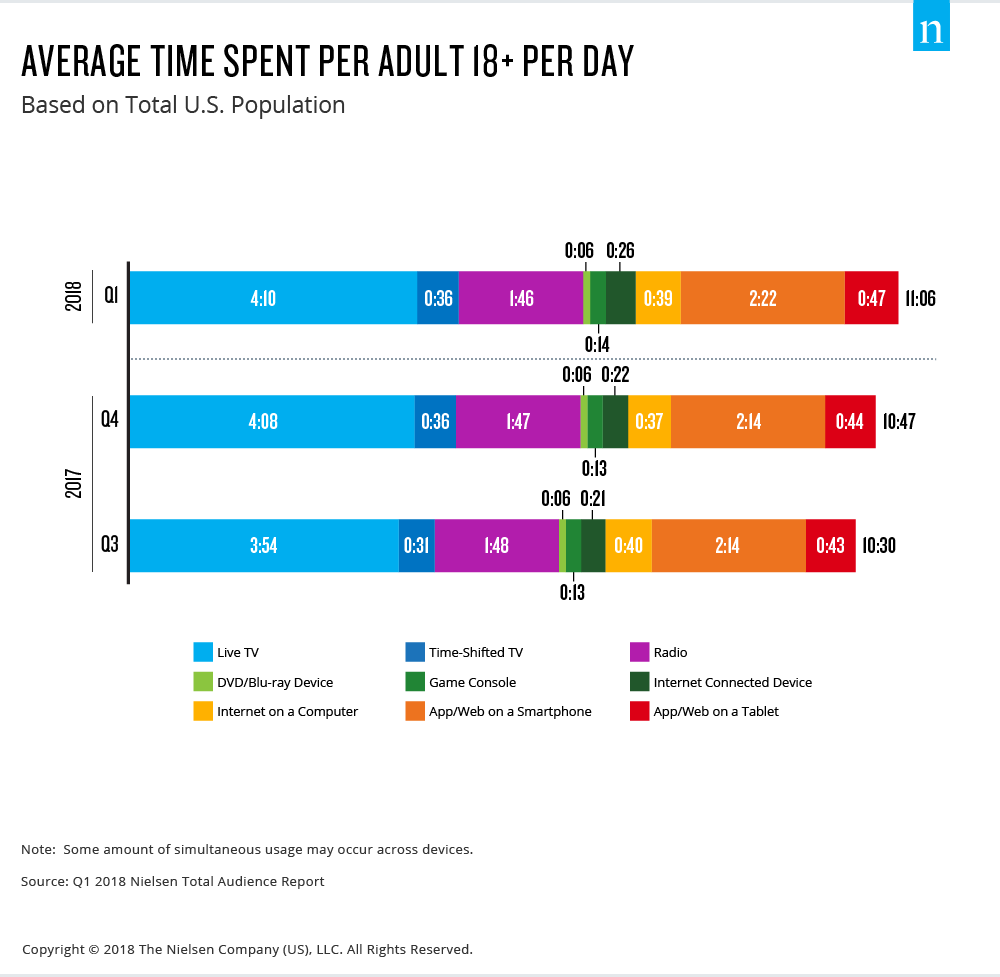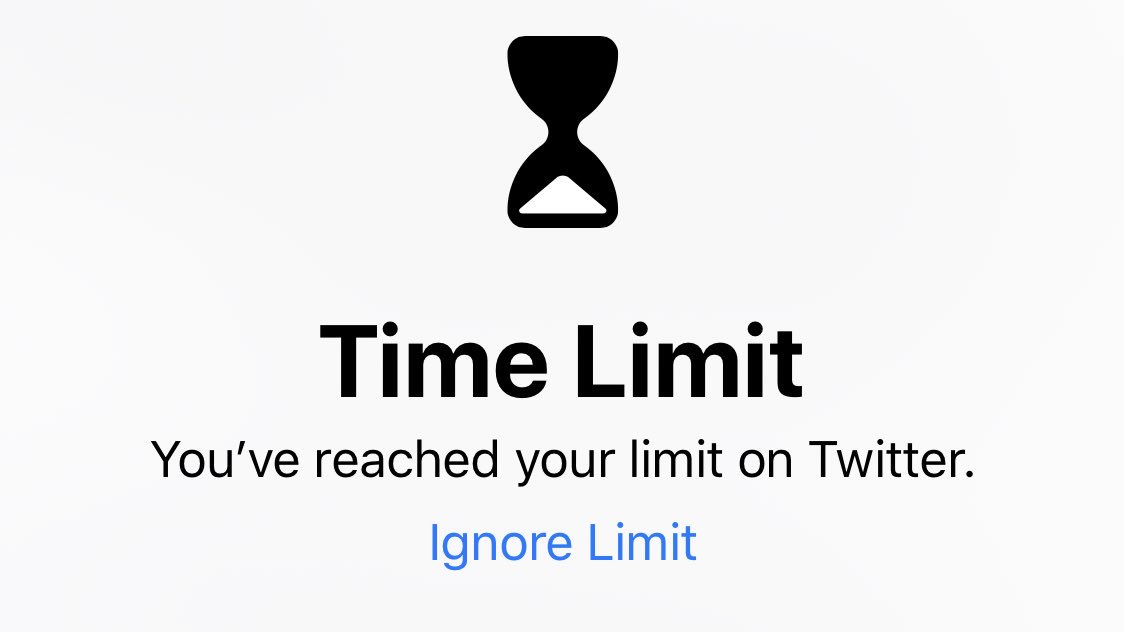Adults spend nearly half of their day in front of a screen.
Nielsen reports that as of 2018, daily screen time for adults averages 11 hours per day, which is a half hour more than 2017's average of 10.5 hours. Considering our smartphones are often within an arm's reach of us, it's no wonder this number continues to climb with each passing year.
Average time spent per adult 18+ per day
Continue reading to learn about the the negative side-effects of too much screen time as well as how to combat and control your screen use.
The Risks of Too Much Screen Time
Computer Vision Syndrome
Computer vision syndrome is a combination of dry eyes caused by reduced blinking and eye strain caused by focusing on a screen for extended periods of time.
Dr. Matthew Gardiner, an ophthalmologist with Harvard-affiliated Massachusetts Eye and Ear Infirmary, says staring at a screen for too long can result in computer vision syndrome. Dr. Gardiner explains, "When you look at a screen, you're so involved that you forget to blink. The blink rate goes from 15 times a minute to five or seven times per minute."
If you often suffer from eye strain or dry eyes, you may have a case of computer vision syndrome.
The Effects of Blue Light
The sun is our primary source of blue light. It is helpful during the day as it can increase attention, reaction times, and mood. That's a great help when you're trying to get work done, but not so great when you're trying to fall asleep at night.
Whether it's your phone, computer, or television, the screens of digital devices emit blue light that can mess with our circadian rhythms and hinder sleep.
💡 Learn more about the Dark Side of Blue Light from Harvard Medical School.
Reduced Physical Activity
The reality of screen time is that it's almost always spent sedentary.
Regular exercise is proven to reduce stress and anxiety, improve sleep, and boost self-esteem. When you spend half of your day in front of a screen, and another 6-8 hours sleeping, that doesn't leave much time for physical activity.
What You Can do to Combat Too Much Screen Time
Reducing screen time becomes extra difficult when you have a job that's mainly on a computer, as many of us do. You might not be able to control your work hours, but you can control your leisure time, how often you take breaks, and how often you get lost on social media.
Track Your Screen Time
To combat too much screen time, you first need to understand how and when you are engaging with a screen. Do you fall above or below the 11-hour per day screen time average?
Screen Time is an iPhone feature (iOS 12) that shows you how much time you spend online and in which applications. Aware tracks your Mac usage so you can see how much time you spend in front of your computer screen. Don't forget about television and video games—that screen time counts too.
Set Screen Time Limits
With Apple's Screen Time application, you can also set limits on the amount of time you want to spend in certain applications. When you've reached your limit, a reminder message will pop up, letting you know you've used up your allotted time.
Limit your social media to 1 hour a day, or limit the use of a favourite app to 30 minutes for a day. You may be surprised how quickly you hit your daily limit. Hear from Austin Kleon and Ann Friedman on how they use Screen Time to set daily limits.
Take Screen Breaks
Breaks are incredibly important for productivity and creativity. Even if you are taking regular breaks, your time off may also be spent staring at a screen. When you take a work break, try to make it a reprieve from screens as well. Instead of picking up your phone as soon as it's break time, or browsing on your computer over lunch, utilize this time as a rest for your eyes. Consider taking a walk outside, or engaging with a co-worker face to face.
Reduce Nighttime Screen Use
End all screen use a couple of hours before bed. This will help you reduce your screen time and help you sleep soundly. Not sure what to do with this time? Use it to read a book, prepare for the day ahead, plan meals, meditate, work on an offline hobby, or spend time with your family.
Install a Blue Light Blocker
Many jobs require us to work on a computer for long periods of time. If your job demands the use of your devices at night, or you are unable to step away and take a break, consider installing a blue light blocker on your computer. Blue light blockers tint your screen and reduce the amount of blue light your eyes are exposed to. There are several different blue light filters available for Mac, Windows, and more.
Use Blue Light Blocking Glasses
While blue light glasses are unlikely to alleviate your eye strain, they are useful to wear at night to block the blue light from affecting your circadian rhythms. If you're having trouble getting to sleep or waking up in the morning, consider a pair of blue light blocking glasses. You may find that the act of putting on glasses has the added benefit of forcing you to think about how much time you spend in front of a screen.
Go Outside
With more and more of our work and lives existing online, it can be tough to find the time to get outside. But we should, since studies show being outside is extremely beneficial to our health. Walks in nature improve memory, lower blood pressure, and reduce stress. Research shows that exploring the outdoors has many mental health benefits as well.
Why not start today? Close this screen and take a walk outside. Today is the perfect day to start building healthy habits around screen time.


